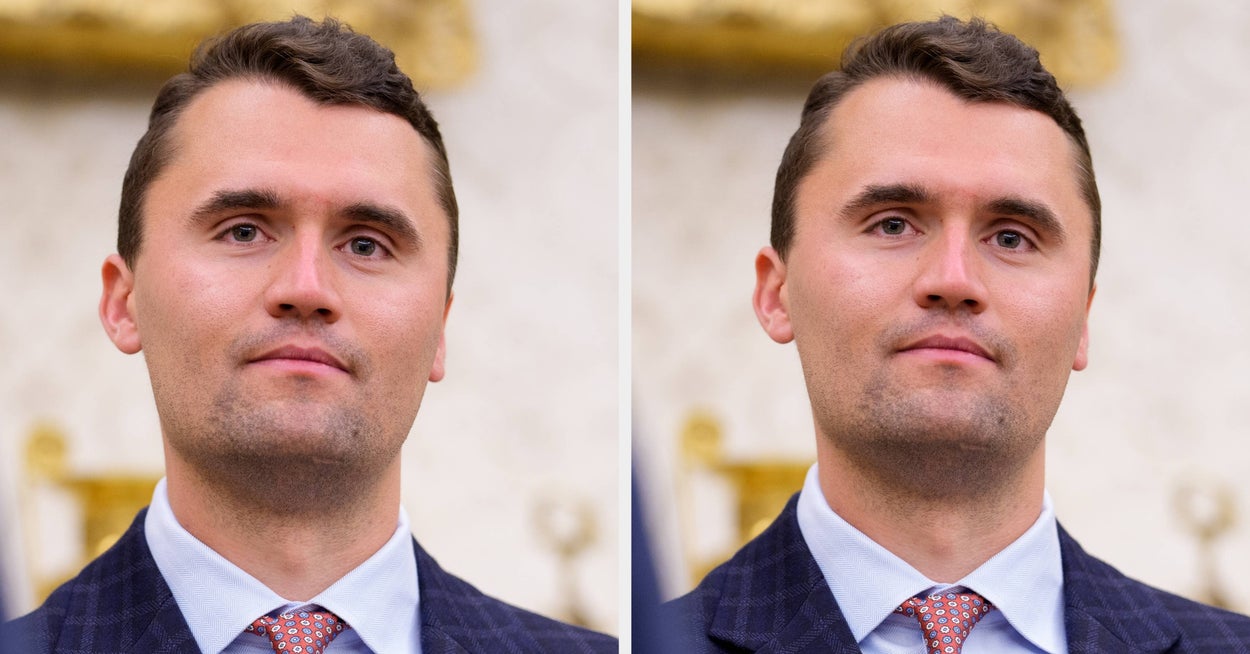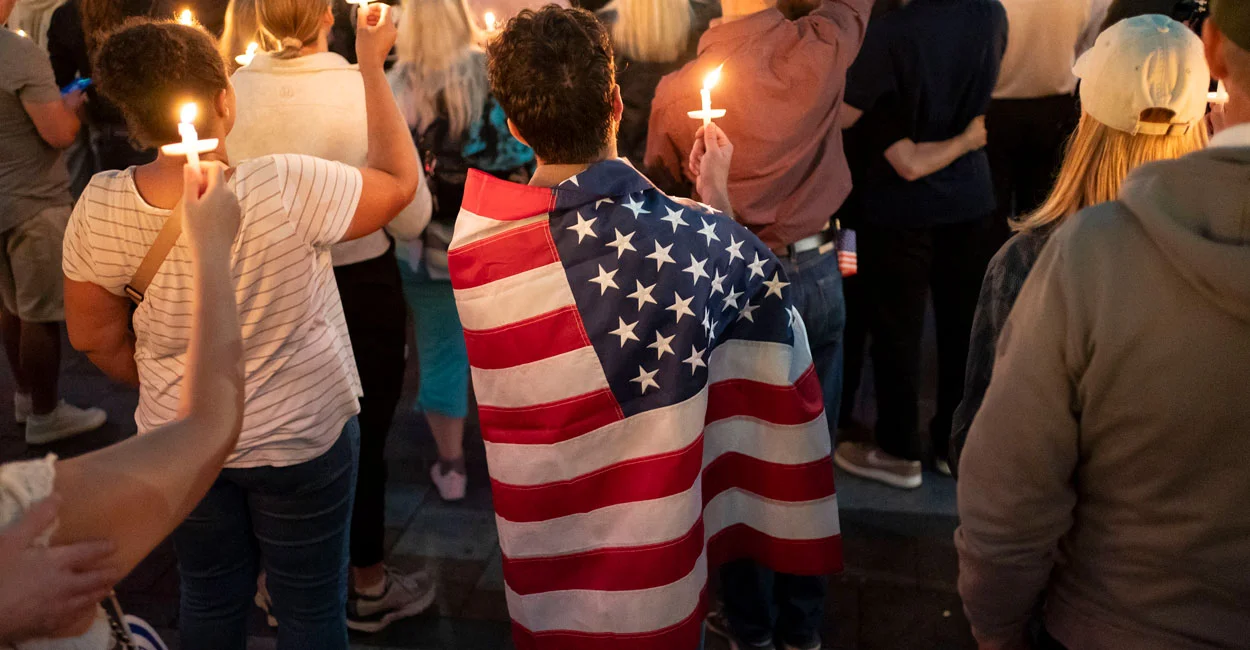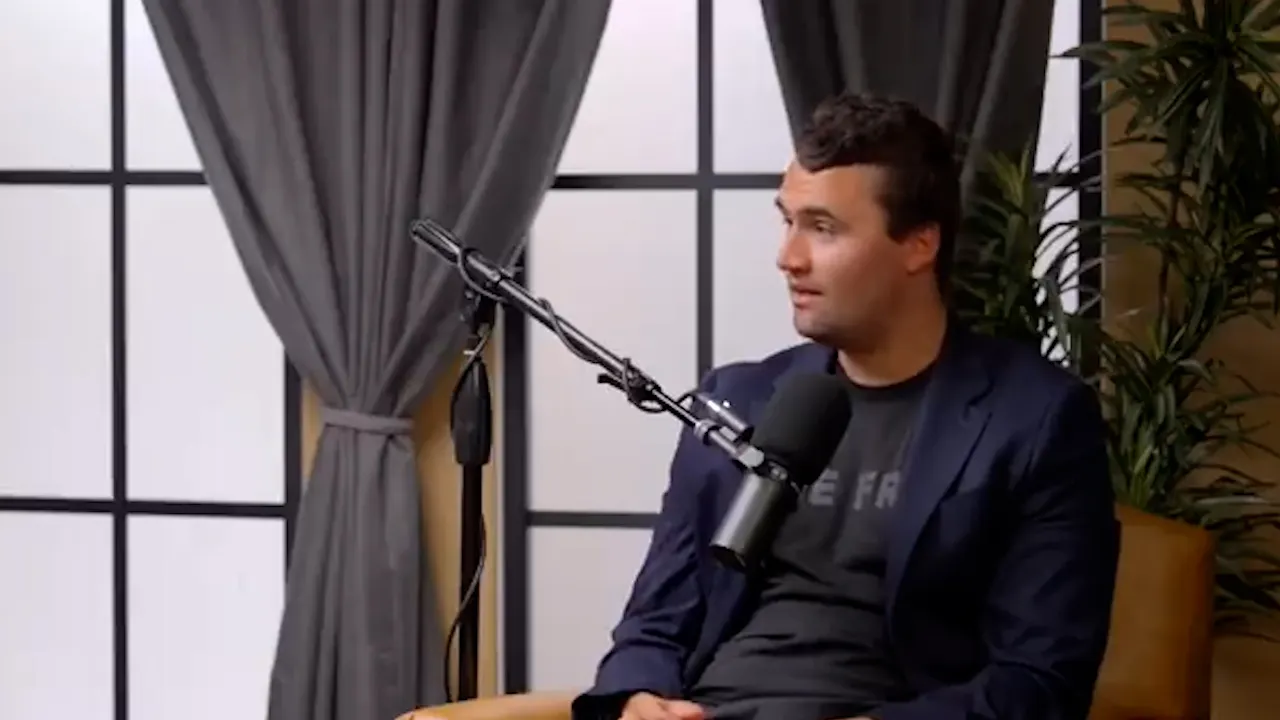
Data Shows People Began Heavily Googling These 2 Words After Charlie Kirk’s Death, And It Hasn’t Stopped Since
Since Charlie Kirk’s assassination, there has been much confusion over this phrase.
Hot Topic
🔥 Full coverage and conversation on Politics
Everyone online is searching for “free speech” right now.
According to Google Trends data of the past 30 days, searches for “free speech” have skyrocketed since conservative activist Charlie Kirk’s assassination on a college campus ― and there have been many reasons for it over the past few days.
There’s Kirk’s death to begin with. The late conservative activist advocated on behalf of free speech, and then was killed while speaking on a college campus. And the reactions to his death are also raising First Amendment concerns as pilots, teachers, and many other workers across America have been getting doxxed and losing their jobs for sharing their opinions about his death.
Now, most recently, the latest target has been late night TV host Jimmy Kimmel.
BuzzFeed TrendingHot Topic
Let’s chat about all things Politics
See our Politics Discussions
“We hit some new lows over the weekend with the MAGA gang desperately trying to characterize this kid who murdered Charlie Kirk as anything other than one of them and doing everything they can to score political points from it,” Kimmel said in his Sept. 15 show. “In between the finger-pointing, there was grieving.”
Afterwards, Federal Communications Commission chair Brendan Carr said that Kimmel’s comments were part of a “concerted effort to lie to the American people,” and he threatened penalties for ABC if it didn’t take action to discipline Kimmel for his comments.
“We can do this the easy way or the hard way,” Carr said on a right-wing podcast.
On Wednesday, ABC swiftly said it was suspending Jimmy Kimmel Live! indefinitely. President Donald Trump celebrated the suspension, congratulating “ABC for finally having the courage to do what had to be done,” on a Truth Social post, which then got reposted on the official White House account.
It was announced on Monday that the show is returning tomorrow, Sept. 23.
So it’s no surprise that one of the top online Google searches right now is free speech related to Jimmy Kimmel, because his suspension is especially alarming to free speech experts.
“Now people are going to be even more hesitant to speak,” said Mark A. Graber, a regents professor of law at the University of Maryland, and a leading scholar on constitutional law and politics. “The way a society drifts from a democracy to a competitive authoritarian regime is not in one blow, but lots of drips.”
Graber said ABC’s actions will make it easier for other businesses to do the same with speech they do not like.
Kimmel’s suspension raises First Amendment concerns because of the government’s involvement. Carr’s words, at minimum, imply that regulatory action might depend on how a company responds to Kimmel’s remarks, said Adam Steinbaugh, senior attorney for the Foundation for Individual Rights and Expression.
“If Carr had said nothing, had done nothing, and ABC said, ‘You know what? Jimmy Kimmel, we don’t like what you said. We’re going to pull you off the air’ –– that’s not a First Amendment problem. That might be a cultural free speech issue, but it’s not a legal First Amendment issue,” Steinbaugh said. But because of Carr’s involvement, “Now it’s a First Amendment problem,” he said.
That’s because the Supreme Court has unanimously ruled that “what the government can’t do through direct action, it can’t do through coercion either,” Steinbaugh said, citing the 2024 National Rifle Association v. Vullo case.
What might also be causing more confusion for people this week is how a key member of the Trump administration is interpreting the First Amendment. Attorney General Pam Bondi recently said the administration plans to broadly target “hate speech” centered around Kirk ― even though the Supreme Court has found no general exception for offensive, repugnant or hateful expression. Bondi later walked back her statements.
The First Amendment doesn’t protect everything you say, though. Hateful speech is not protected when a person’s words incite imminent lawless action or threaten serious bodily harm, for example.
Steinbaugh said that in the wake of Kirk’s death, he would hope that “as a nation, we would have a renewed commitment to say, ‘All right, there is speech out there that we don’t like or that people might find deeply offensive, but the solution can’t be violence and the solution can’t be state censorship,’” he said.
“Instead, it seems like… what’s happening is even more questions around free speech being raised,’” he said. “We are right now, I think, making the nation less educated about the First Amendment and about free speech as we go through a period of social and political turmoil.”
There have long been free speech fights in the United States, but the heightened interest in free speech online might also be due to more people waking up to what many marginalized people already experience.
Ten years ago, activist Soraya Chemaly, author of the upcoming book All We Want Is Everything: How We Dismantle Male Supremacy, said that when she organized on behalf of free speech for women facing abuse online, she didn’t get much traction. But now this issue is becoming more mainstream as prominent people like Kimmel and everyday people you might know are losing their jobs.
“What I think is happening now is a lot of people who felt safe before no longer feel safe in this society,” Chemaly said. “A lot of people who grew up believing that the government served them are now coming to terms with government that really not only doesn’t serve them, but will be actively hostile to them.”
This article has been updated to include news of Jimmy Kimmel’s return to his show. This article originally appeared on HuffPost.



